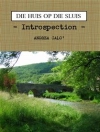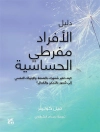Information is crucial when it comes to the management of resources. But what if knowledge is incomplete, or biased, or otherwise deficient? How did people define patterns of proper use in the absence of cognitive certainty? Discussing this challenge for a diverse set of resources from fish to rubber, these essays show that deficient knowledge is a far more pervasive challenge in resource history than conventional readings suggest. Furthermore, environmental ignorance does not inevitably shrink with the march of scientific progress: these essays suggest more of a dialectical relationship between knowledge and ignorance that has different shapes and trajectories. With its combination of empirical case studies and theoretical reflection, the essays make a significant contribution to the interdisciplinary debate on the production and resilience of ignorance. At the same time, this volume combines insights from different continents as well as the seas in between and thus sketches outlines of an emerging global resource history.
Mục lục
Acknowledgements
Introduction: The Social Functions of Ignorance
Frank Uekötter and Uwe Lübken
Chapter 1. Guayule Fever. Los Knowledge and Struggles for a Natural Rubber Reserve in the American West
Mark R. Finlay
Chapter 2. Thinking in Cycles. Flows of Nitrogen and Sustainable Uses of the Environment
Hugh S. Gorman
Chapter 3. The Forests of Canada. Seeing the Forests for the Trees
Susan Herrington
Chapter 4. Forest Law in the Palestine Mandate. Colonial Conservation in a Unique Context
David Schorr
Chapter 5. Perception and Use of Marine Biological Resources under National Socialist Autarky Policy
Ole Sparenberg
Chapter 6. Ignorance is Strength. Science-based Agriculture and the Merits of Incomplete Knowledge
Frank Uekötter
Chapter 7. Expert Estimates of Oil-Reserves and the Transformation of “Petroknowledge” in the Western World from the 1950s to the 1970s
Rüdiger Graf
Chapter 8. Reducing Uncertainty with Scenarios?
Cornelia Altenburg
List of Contributors
Select Bibliography
Giới thiệu về tác giả
Uwe Lübken joined the Rachel Carson Center for Environment and Society in 2009 and currently serves as director of the project “Disaster Migration in a Historical Perspective”. His habilitation thesis on flooding of the Ohio River was published in 2014. His most recent publications include, as an editor, two special issues of the journal Global Environment on Environmental Change and Migration in History (9/2012) and on Small Islands and Natural Hazards ( 8 (1/2015, New Series ), and, together with Greg Bankoff and Jordan Sand, Flammable Cities: Urban Conflagration and the Making of the Modern World (2012).












